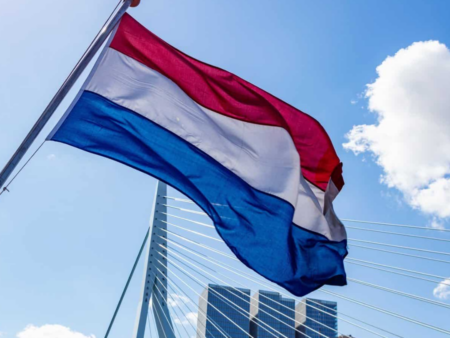The Ukrainian Gambling Council (UGC) has once again made a formal appeal to Google to review its strict policy of prohibiting all gambling-related advertisements from licensed Ukrainian operators. This ongoing dispute highlights the challenges faced by legitimate businesses in Ukraine’s regulated gambling sector and raises critical concerns about the growth of illegal gambling operations that could potentially take advantage of the current restrictions.
Google’s Gambling Advertisement Ban in Ukraine: A Double-Edged Sword
Under its current policy, Google classifies Ukraine as a country where all forms of gambling, with the exception of lotteries, are prohibited from advertising. This classification does not consider the legal reforms made in Ukraine’s gambling sector, where operators holding valid state licenses have the right to run casino games, sports betting, and poker both online and in physical locations.
This blanket ban means that advertisements from legally licensed Ukrainian gambling operators are blocked on Google’s advertising services. At the same time, the UGC warns that illegal operators, who continually change their domain names and jurisdictional details, are finding ways to bypass these restrictions, ultimately harming the licensed market. As a result, illegal gambling outfits are able to operate freely while legitimate businesses suffer.
Impact on Licensed Operators and the Ukrainian Economy
The implications of Google’s policy go beyond the immediate concerns of restricted advertising access for licensed operators. Legal gambling companies in Ukraine have invested significant resources in acquiring proper licenses, marketing their services, and contributing to the economy through taxes and sponsorships of sports events.
By restricting access to advertising, these businesses experience a severe reduction in customer acquisition and retention, leading to losses in both revenue and market share. As licensed operators are squeezed out, it negatively impacts tax revenues for the Ukrainian state, undermining the entire economic structure designed to support the legal gambling sector.
A Paradox in Advertising Policy: Lotteries Continue Unrestricted
An interesting paradox within Google’s policy is the unrestricted advertising enjoyed by lottery operators in Ukraine, despite the fact that many of these companies have operated with expired licenses since 2014. The UGC claims that these entities, while technically classified as lottery operators, imitate other forms of gambling like sports betting and online casino games without contributing taxes or adhering to licensing regulations.
This situation has created an uneven playing field where legal gambling operators who comply with the regulations face advertising bans, while lottery operators continue their activities unchecked. This disparity exacerbates the challenges faced by the Ukrainian gambling industry, calling into question the fairness of Google’s current approach.
UGC’s Appeals to Google: Lifting the Ban on Legal Gambling Advertisements
In response to these issues, the Ukrainian Gambling Council has consistently appealed to Google’s regional office in Ukraine, requesting that the tech giant reconsider its blanket restrictions. The UGC argues that allowing licensed operators to advertise their services would not only help legitimate businesses thrive but would also curb the proliferation of illegal gambling sites, which exploit the lack of regulated competition in the advertising space.
The Council is requesting that Google grant licensed operators the ability to advertise various forms of gambling, such as sports betting, online casinos, and poker, across its platforms. This would enable these operators to market their services effectively to Ukrainian consumers, both for physical establishments and online gambling platforms.
The Case for Mobile Gambling Applications on Google Services
Another key aspect of the UGC’s appeal is the inclusion of mobile gambling applications in the Google Play Store and other related services. Currently, Google’s policies prevent licensed gambling apps from being listed, depriving Ukrainian operators of an essential channel for reaching mobile players.
In the age of mobile-first experiences, being unable to list gambling applications on Google’s services puts licensed operators at a significant disadvantage. This exclusion pushes users toward illegal apps, which are often unregulated, unsafe, and not subject to the same player protections that licensed operators provide. By allowing legitimate mobile gambling apps, Google would not only increase safety for consumers but also support the legal market’s growth.
The Risk of Illegal Gambling Operations Thriving in the Shadows
One of the UGC’s most pressing concerns is that by keeping legitimate operators from advertising on Google, illegal gambling operations are allowed to flourish. These illegal entities frequently change their domain names and jurisdictions to exploit loopholes, allowing them to escape advertising restrictions and regulatory oversight.
Without advertising from legitimate operators, consumers are more likely to encounter unregulated platforms, which can expose them to fraud, unsafe gaming environments, and lack of consumer protections. The UGC believes that lifting the advertising ban on licensed operators will help shift the focus back to regulated gambling businesses and reduce the visibility of illegal platforms.
A Call for Change: Aligning Policies with Ukraine’s Regulated Gambling Sector
The Ukrainian Gambling Council is hopeful that its ongoing discussions with Google’s regional office will result in positive changes. They argue that Google’s current advertising policy in Ukraine fails to recognize the country’s evolving legal landscape and the robust regulatory framework in place for licensed operators.
To create a more balanced, transparent, and regulated gambling ecosystem, the UGC emphasizes the need for Google to update its policies in line with the legal framework governing Ukraine’s gambling sector. Allowing legitimate operators to advertise and list mobile apps on Google services would support the licensed industry, boost tax revenues for the state, and significantly reduce the presence of illegal operators in the market.
Conclusion: The Appeal
The ongoing appeal from the Ukrainian Gambling Council to Google highlights a critical issue in the country’s evolving gambling industry. As Ukraine continues to regulate its gambling market, the ability for licensed operators to advertise on major platforms like Google is essential for their growth and success. Removing the blanket ban on gambling advertisements will provide a fairer competitive landscape, enabling legitimate businesses to thrive while curbing the growth of illegal operators.
FAQs About Ukrainian Gambling Council’s Appeal to Google
1. What is the Ukrainian Gambling Council (UGC) asking from Google?
The Ukrainian Gambling Council is asking Google to lift its blanket ban on gambling advertisements for licensed Ukrainian operators. They seek permission to advertise legal gambling activities such as casino games, sports betting, and poker, both online and in physical establishments.
2. Why does Google currently ban gambling advertisements in Ukraine?
Google treats Ukraine as a jurisdiction where all forms of gambling, except lotteries, are prohibited. This policy prevents licensed gambling operators in Ukraine from advertising on Google’s platform, even though they hold state-issued licenses.
3. How does this ban impact licensed operators in Ukraine?
The ban prevents licensed operators from advertising their services, leading to customer loss and reduced profits. It also diminishes their market visibility and affects tax revenues for the Ukrainian government, all while allowing illegal operators to exploit the situation.
4. What are illegal gambling operations doing to bypass Google’s restrictions?
Illegal operators frequently change their domain names and jurisdictions, enabling them to bypass Google’s restrictions. This allows them to continue advertising, often harming the market for legitimate, licensed operators.
5. Why are lottery operators still allowed to advertise on Google in Ukraine?
Despite the expiration of licenses for many lottery operators since 2014, they continue to advertise on Google without restrictions. The UGC claims these operators often imitate other gambling forms without proper licensing or tax contributions, creating unfair competition.
6. How would lifting the ban benefit Ukraine’s gambling industry?
Allowing licensed operators to advertise would help them regain market share, increase customer acquisition, and contribute to state revenues through taxes. It would also help curb the growth of illegal gambling operations by making regulated services more visible to consumers.
7. What is the UGC’s stance on mobile gambling applications?
The UGC is also requesting that licensed mobile gambling applications be allowed on Google’s platforms. Currently, licensed apps are banned, making it difficult for operators to reach mobile users, which pushes consumers toward illegal, unsafe platforms.
8. How does the UGC argue that Google’s policy affects the Ukrainian economy?
The UGC points out that preventing licensed operators from advertising reduces their ability to generate revenue and taxes, which impacts state funding. It also allows illegal operators to dominate the market, further hurting the economy.
9. What risks does the current policy pose for Ukrainian consumers?
The ban on licensed operator advertisements pushes consumers toward illegal, unregulated platforms, which can expose them to fraud, unsafe gaming environments, and lack of consumer protection.


















